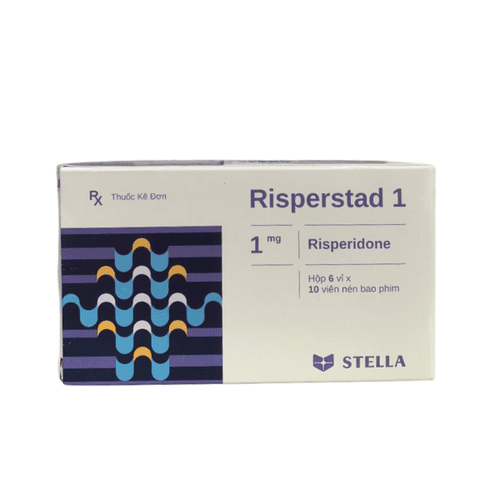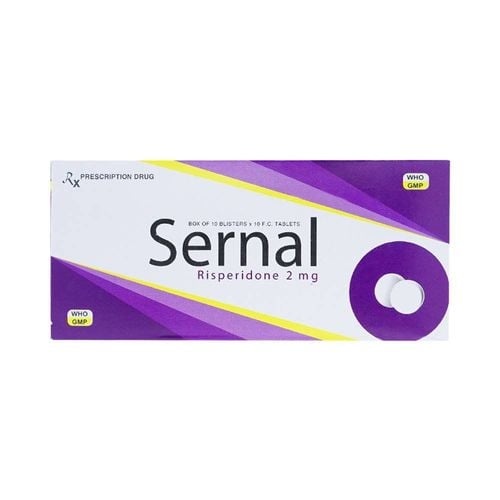This is an automatically translated article.
Sensory overload can cause feelings of overwhelming. Fortunately, putting in place the right coping strategies can help get this under control quickly. Current therapies for sensory overload primarily involve avoiding exposure to triggers, getting adequate rest, and drinking plenty of fluids.
1. Overview of sensory overload
Sensory overload occurs when the input from the 5 senses is more than the brain can organize and process. Situations such as a conversation going on in a room, flashing lights overhead, or a noisy party can all overwhelm the senses.
Anyone can experience sensory overload, and the triggers for sensory overload are different from person to person.
Sensory overload has been linked to a number of health conditions such as autism, sensory processing disorder, post-traumatic stress disorder (PTSD), and fibromyalgia.
2. Sensory overload symptoms
Symptoms of sensory overload vary from case to case. Among them, common symptoms include:
Difficulty concentrating in the face of stressful situations Irritability Restlessness and irritability Closing ears or covering eyes Overly excited or distressed Stress, fear or anxiety About the surroundings Greater sensitivity to items that come in contact with the skin

Một trong những triệu chứng của quá tải cảm giác là dễ cáu gắt
3. Causes of sensory overload
The brain works like a complex computer system. The senses transmit information received from the environment into the brain, the brain is responsible for interpreting the information and making a response.
However, when there is a lot of information to process at once, the brain will not be able to interpret it all. For some people, this causes information to get "stuck", the brain unable to prioritize which sensory information to focus on.
The inability to process information causes the brain to send signals to the body to reduce the amount of information input. The brain feels trapped by all the input it receives, and the body begins to feel panic in a chain reaction.
4. Risk factors for sensory overload
Sensory overload can happen to anyone. In addition, it is also a common symptom of a number of health conditions such as:
Autism : Autism causes the patient to become hypersensitive to input from the senses, which causes emotional overload more likely to occur. Attention Deficit Hyperactivity Disorder (ADHD): With ADHD, information competes with each other for the brain's attention, sensory overload can occur. Generalized Anxiety Disorder and PTSD: Fatigue and stress can both contribute to sensory overload, making the senses more sensitive during panic attacks and PTSD episodes. Fibromyalgia: Sensory overload can often be a symptom of fibromyalgia. Multiple Sclerosis (MS): Having too much stimulation from the senses can cause sensory overload, especially during flare-ups of MS symptoms. In addition, other medical conditions such as dysesthesia, chronic fatigue syndrome, and Tourette's syndrome may also contribute to sensory overload.
5. Sensory overload in children
If the child has behaviors such as crying uncontrollably, reacting violently to loud noises, getting nervous before entering a group meeting, etc., it is very likely that they are experiencing emotional overload. In addition, the child may show symptoms such as limited emotional expression, lack of eye contact, difficulty concentrating even in quiet environments, and speech retardation.
If the above symptoms appear, talk to your doctor for advice on how to best help your child overcome sensory overload.

Hãy nói chuyện với bác sĩ để được tư vấn cách giúp trẻ vượt qua quá tải cảm giác hiệu quả nhất
6. Solution
If you're feeling overwhelmed, take the time to figure out what's causing the problem. Some people are triggered by noise, while others are triggered by flashing lights and large crowds.
Once the cause is found, try to limit your exposure to those triggers by:
Ask to turn off lights or music and close the door to limit noise pollution when attending a social gathering Up Make a list of foods to buy before you go to the store to avoid being overwhelmed by the range of options, scents and sounds during the shopping process. Hold conversations in a corner or in a private room while in a large meeting. Plan to leave the event early if you feel like there is a way out. Rest and drink plenty of water to help your brain function better. Here is a list of common situations that cause sensory overload in most people:
Celebrations and parties : Places that tend to have loud music and take place at night. The mix of music, alcohol, and flashing lights can make you feel overwhelmed and want to leave the fun. Swimming pool: Loud noise from children, screaming, food can make you want to leave immediately.
7. Treatment of sensory overload
There are not many treatment options available for sensory overload. Most treatments focus on avoiding triggering situations, keeping the body as rested and hydrated as possible.
Occupational and nutritional therapy can help children manage stimuli and triggers. Another therapeutic approach called sensory integration is still under investigation.
Treatment of related conditions may improve symptoms of sensory overload. For example, the drug aripiprazole (Abilify) has been found to improve sensory processing in people with autism.
Vinmec International General Hospital is one of the hospitals that not only ensures professional quality with a team of leading medical doctors, modern equipment and technology, but also stands out for its examination and consultation services. comprehensive and professional medical consultation and treatment; civilized, polite, safe and sterile medical examination and treatment space.
Please dial HOTLINE for more information or register for an appointment HERE. Download MyVinmec app to make appointments faster and to manage your bookings easily.
Reference source: healthline.com











